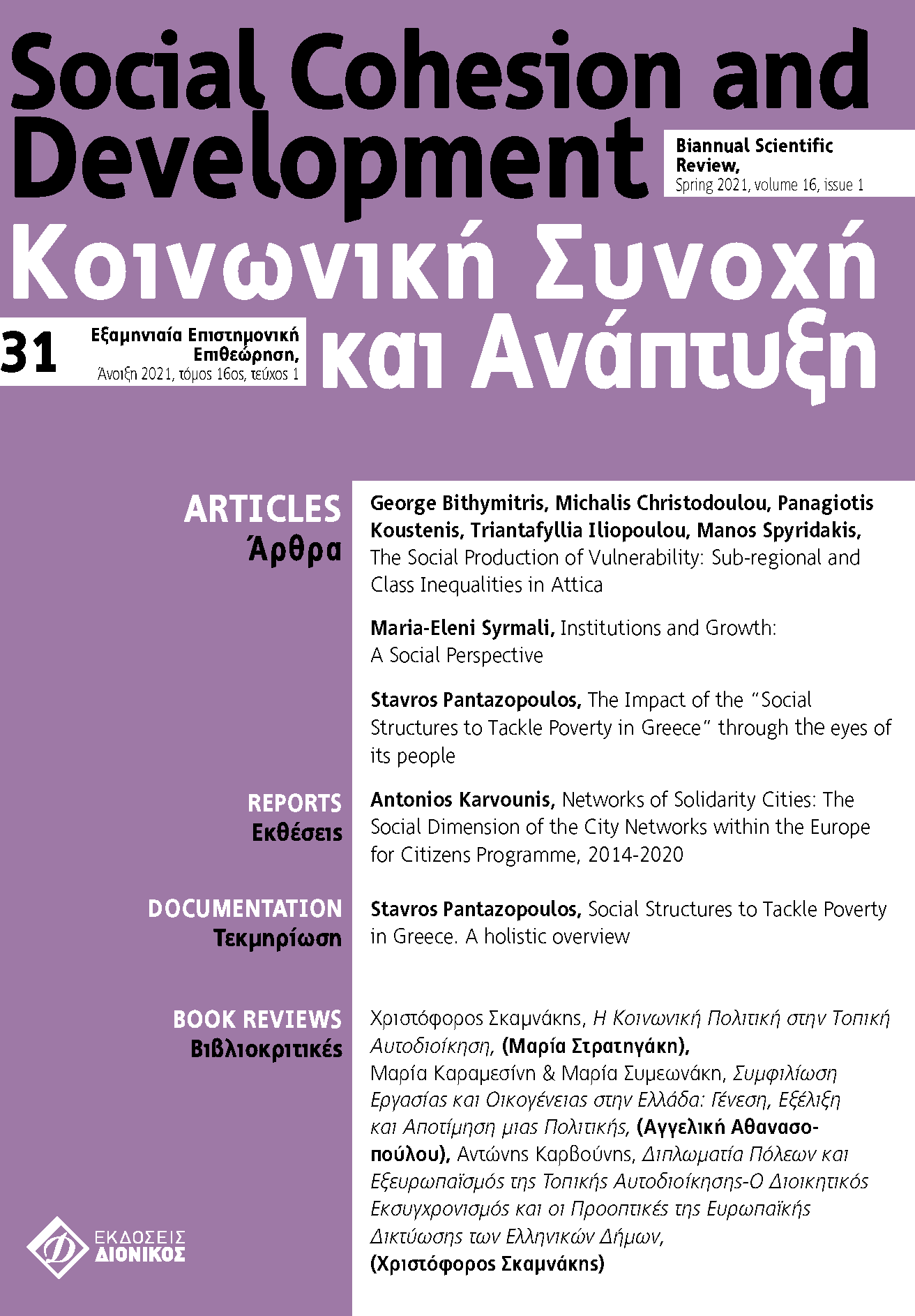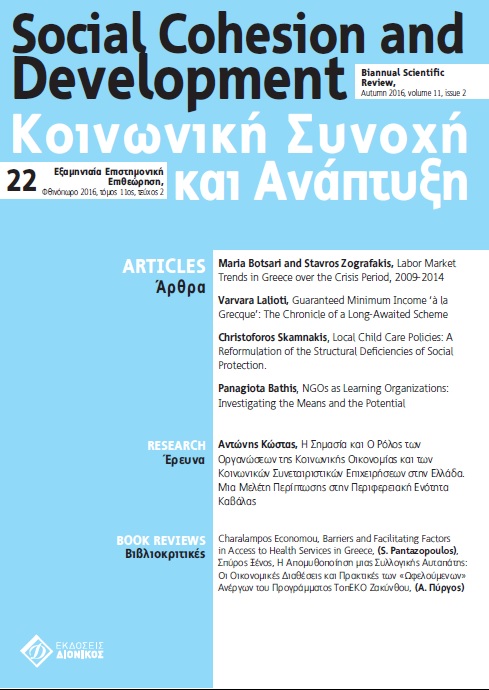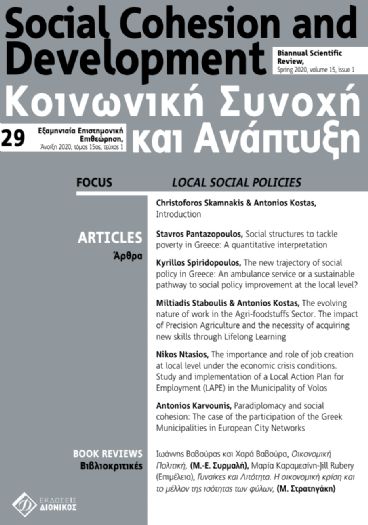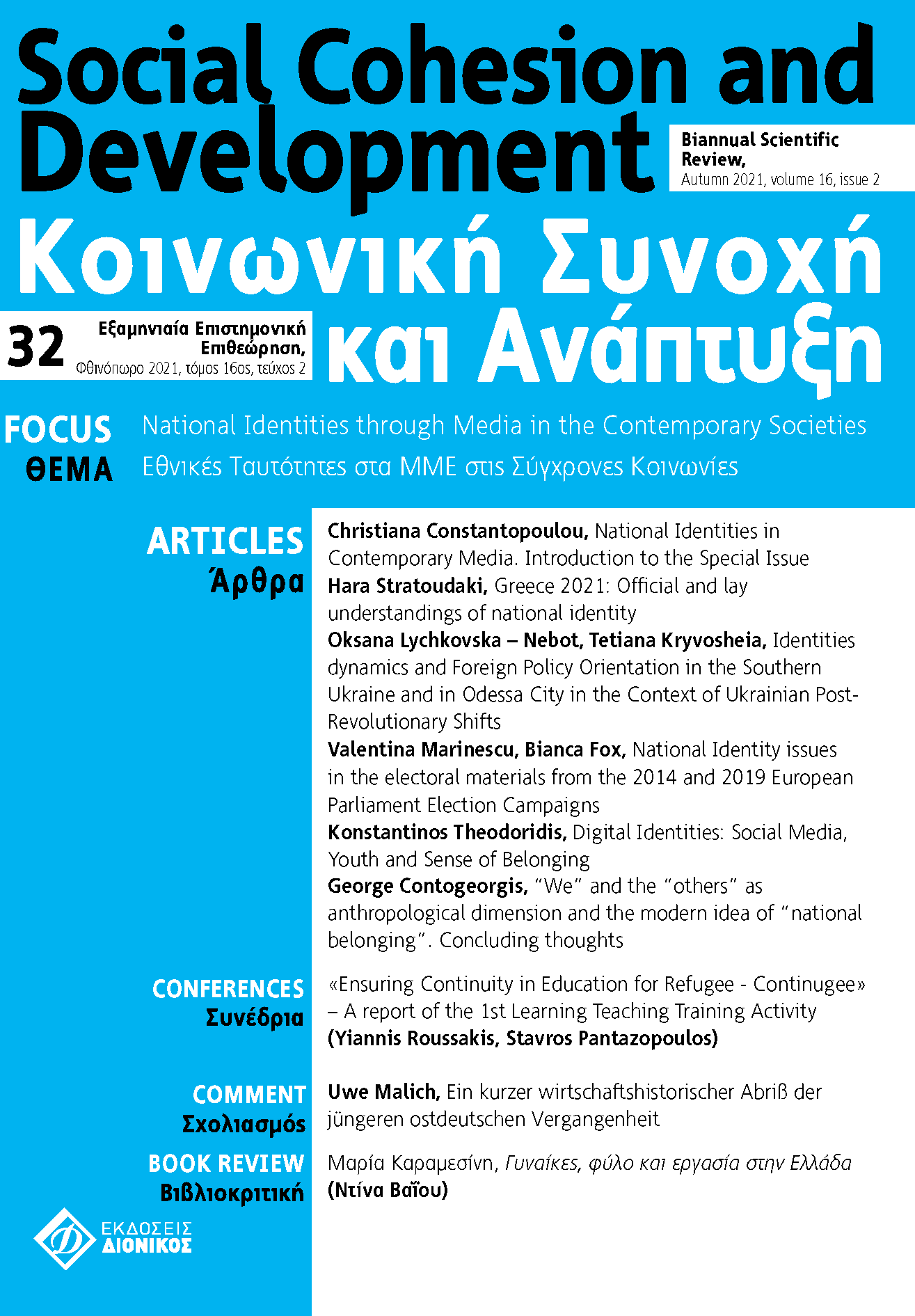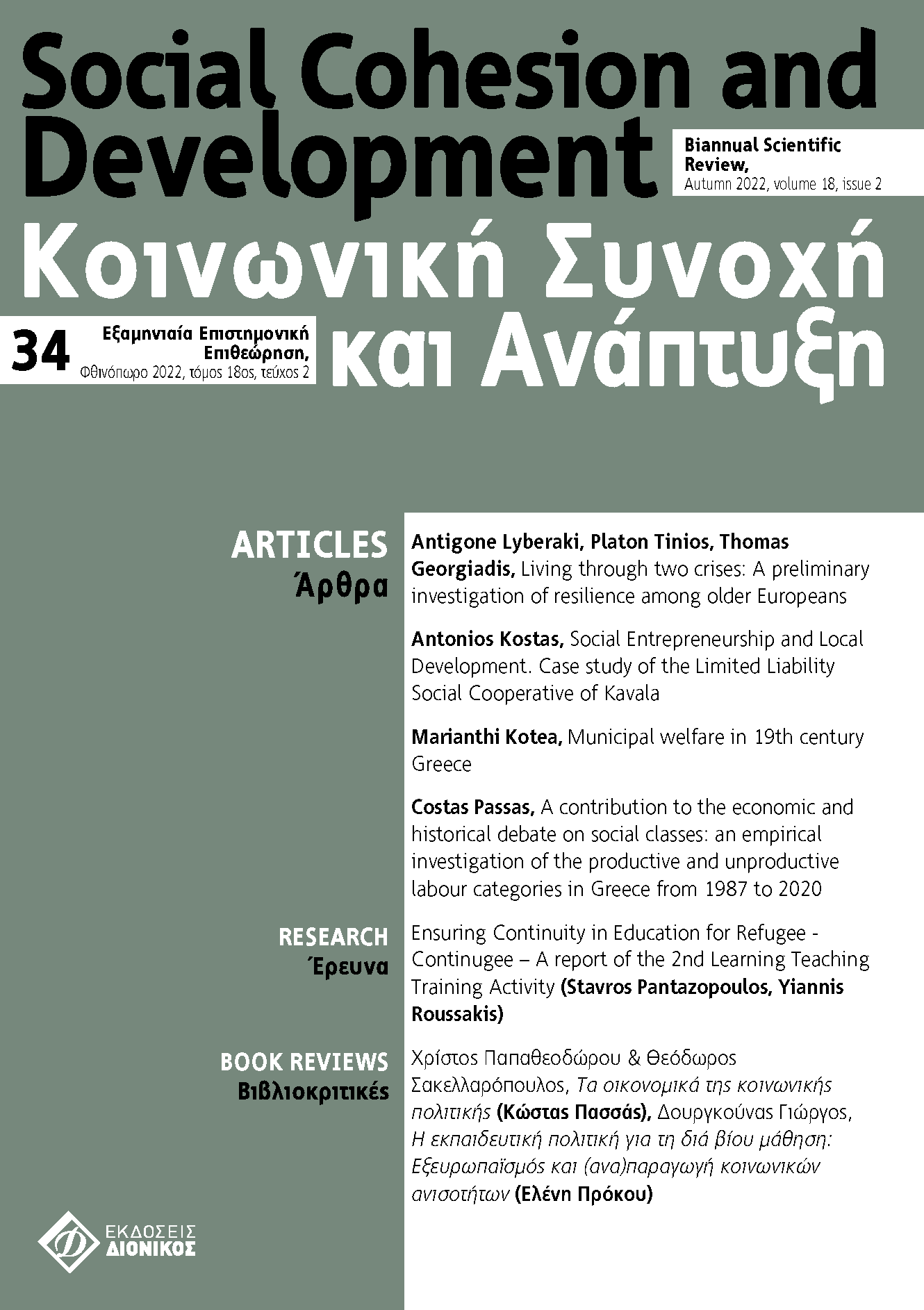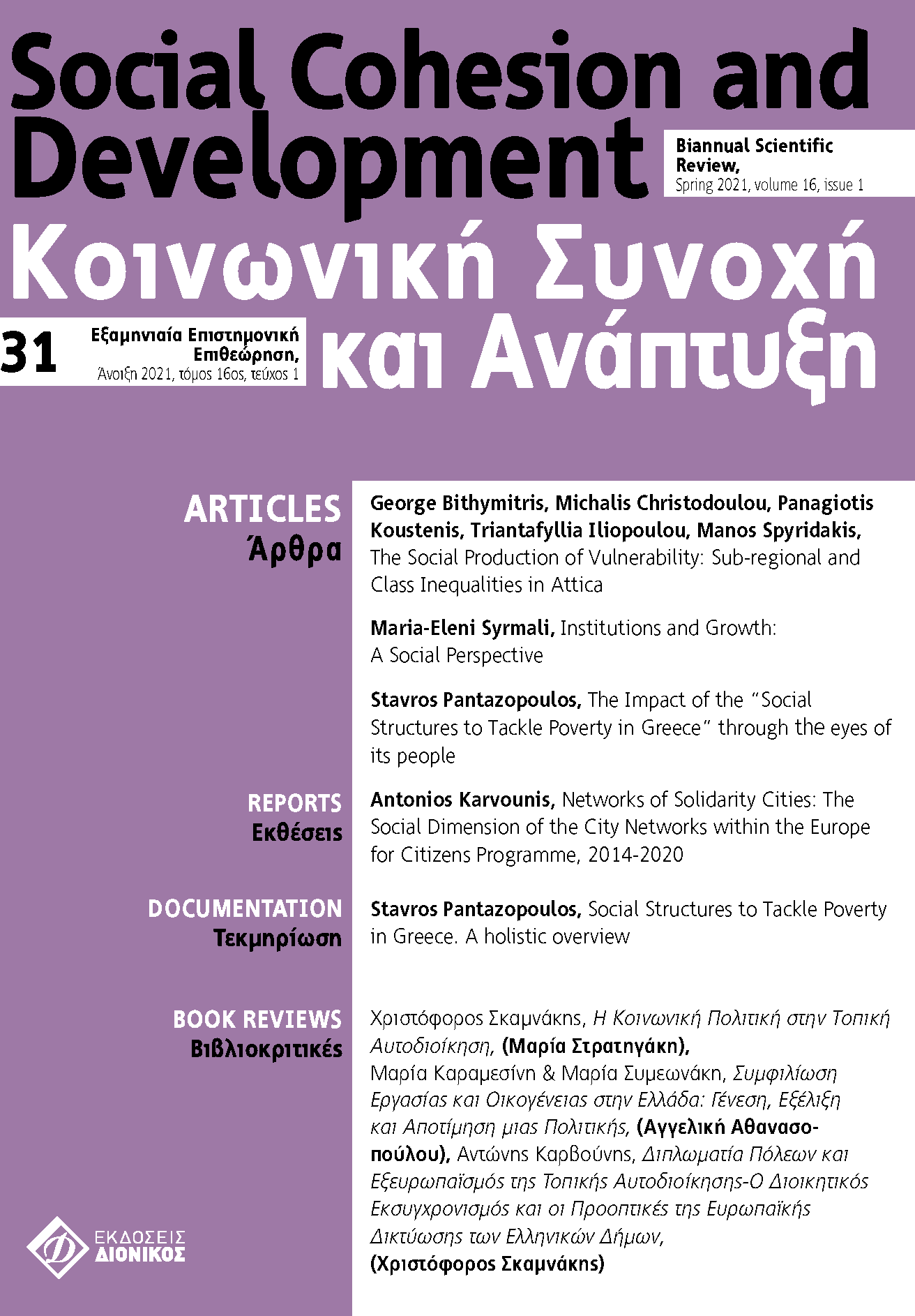The Ιmpact of the “Social Structures to Tackle Poverty in Greece” through the eyes of its people
Abstract
The present article focuses on the implementation of the programme of Social Structures to Tackle Poverty in Greece (hereafter: “SSTPGs”) realised throughout the period 2012-2017. In particular, the paper presents the results of evaluation conducted at five (5) different municipalities of Attica. The paper emphasizes on the findings of qualitative research carried out on the basis of sixteen (16) interviews, with employees directly benefiting from the SSTPGs as well as with participant members of the Implementation Bodies, Vice Mayors and officials from the Non-Profit Civil Partnership (AMKE) Scientific Society for Social Cohesion and development (hereafter: “EPEKSA”). It constitutes the second part of assessment which was realised with the purpose to allow the individuals involved in the programme to provide feedback on it, for themselves. Basically, the key point concluded from the interviewees’ own responses has been that the programme’s mission was fulfilled successfully. Also, another main objective achieved has been the beneficiaries’ re-inclusion into society, through guided counselling and psychosocial support.
Article Details
- How to Cite
-
Pantazopoulos, S. (2021). The Ιmpact of the “Social Structures to Tackle Poverty in Greece” through the eyes of its people. Social Cohesion and Development, 16(1), 43–66. https://doi.org/10.12681/scad.32111
- Section
- Articles

This work is licensed under a Creative Commons Attribution-NonCommercial-ShareAlike 4.0 International License.
Authors who publish with this journal agree to the following terms:
- Authors retain copyright and grant the journal right of first publication with the work simultaneously licensed under a Creative Commons Attribution Non-Commercial License that allows others to share the work with an acknowledgement of the work's authorship and initial publication in this journal.
- Authors are able to enter into separate, additional contractual arrangements for the non-exclusive distribution of the journal's published version of the work (e.g. post it to an institutional repository or publish it in a book), with an acknowledgement of its initial publication in this journal.
- Authors are permitted and encouraged to post their work online (preferably in institutional repositories or on their website) prior to and during the submission process, as it can lead to productive exchanges, as well as earlier and greater citation of published work (See The Effect of Open Access).

